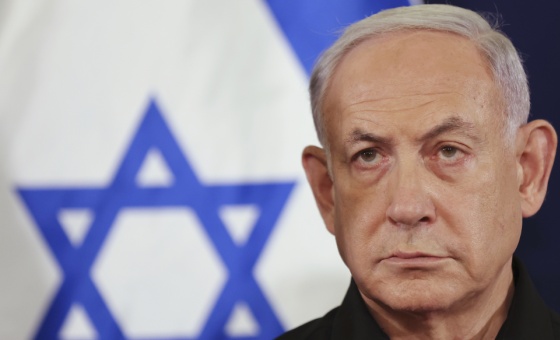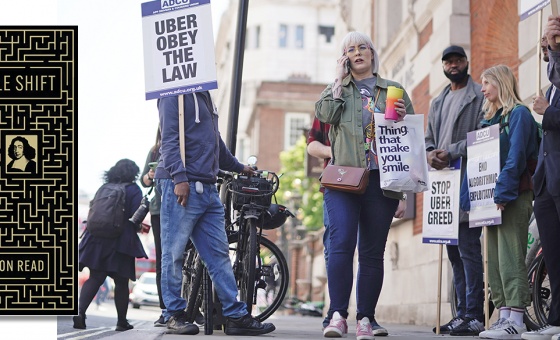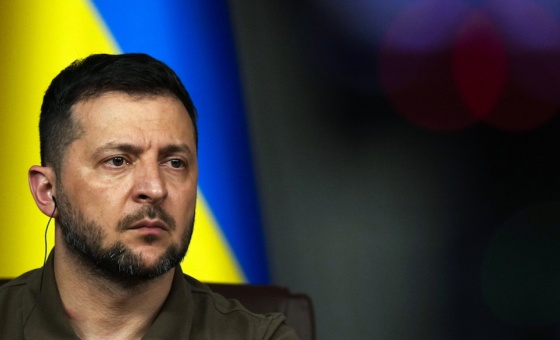This is the last article you can read this month
You can read more article this month
You can read more articles this month
Sorry your limit is up for this month
Reset on:
Please help support the Morning Star by subscribing here
LATIN AMERICA’S left has secured victory after victory in recent years, winning the presidencies in nearly every country, landing important blows against neoliberalism and offering a beacon of hope to progressives the world over.
Ecuador is the latest country to see a stunning victory for the left. Last week, the left-wing Citizens Revolution party, led by former president Rafael Correa, won the mayoralties in the country’s major cities and the governorships in nine provinces, accounting for two-thirds of the population.
What marks this victory out is not only the strong results but the fact they were won against the backdrop of sustained political persecution and legal repression that has targeted the left and sought to decapitate it over the past six years.
This strategy, known as “lawfare,” is most associated with the jailing of Brazilian leader Lula da Silva on trumped-up charges when he was the favourite to win the 2018 presidential election.
After a huge struggle, Lula is now not only free but has returned to the presidency after his electoral victory last late year
Though less well known, Ecuador is the country where lawfare has perhaps been the most thoroughgoing.
Leading politicians who ran the country so successfully for a decade up to 2017 — reducing poverty and inequality, achieving strong growth and advancing social inclusion — have been at the sharp end of this persecution from the judiciary, electoral authorities and other state bodies.
Correa has been granted political asylum in Belgium after a farcical legal case against him sentenced him to years in prison without any evidence.
His former vice-president was thrown into prison where he remains. Paola Pabon, a governor in an area that includes Ecuador’s capital city, was jailed for inciting “rebellion” after supporting protests against austerity.
While other senior figures including Ricardo Patino, in many ways the second most important figure in Correa’s cabinet, sought sanctuary in Mexico to avoid a similar fate.
Even the very party that Correa led, Alianza Pais, was taken from the left by the electoral authorities. Correa’s allies were even prevented at times from registering a new party.
The calculation from the Ecuadorian elites was simple. The left would win in a free and fair election contest and so the playing field had to be made as uneven as possible with elections overseen by biased referees.
The wider objective of this lawfare was to remove every trace of the impressive social progress delivered by Correa’s decade as president which was a central part of the so-called “pink tide” of Latin American governments that included Lula, Hugo Chavez and Evo Morales among others.
Lawfare has in many ways been successful in Ecuador. The right wing narrowly won the 2021 presidential election after political persecution meant allies of Correa had to run a talented but relatively unknown young candidate as president and had to run under the banner of a little-known party.
But lawfare is also a reflection of the weakness of the right-wing elites. When the right comes to power using this strategy, it is a sign that it cannot win in free elections because it doesn’t have the policies to address the deep problems that continue to blight Latin America.
They only offer the same failed neoliberal recipes that Latin Americans have rejected time after time for the past 25 years.
The current Ecuadorian government led by President Guillermo Lasso, a banker and one of the country’s richest men, is a case in point. He has been a total failure since winning in 2021.
Ecuador has gone from Latin America’s second-safest country to one of its most dangerous, with the murder rate up almost five-fold since Correa left office in 2017. It is now at the highest level recorded in the country.
The IMF has returned to the fore in determining Ecuador’s economic policies, including deeply unpopular privatisation and cuts. As a result of these policies, Lasso faced an 11-day popular uprising led by indigenous and other social movements last year.
Ecuadorians are also emigrating again in huge numbers in an echo of what happened at the turn of the century when current Lasso was the economy minister and oversaw an economic crisis so deep that up to one million Ecuadorians left their country.
Even before the local elections Lasso’s levels of support were already below 20 per cent and the latest results have delivered him a further blow.
This was made worse still when all eight of his proposed constitutional changes were rejected in a national referendum held on the same day as the elections.
Lasso had hoped the referendum would allow him to regain the political initiative (with some of the proposals also part of an anti-democratic power grab).
The exact opposite has happened with his defeat. Key Lasso ministers and presidential advisers have already resigned.
But it is not just President Lasso facing difficulties — the wider right is also on the back foot with the Social Christian Party losing control to Correa’s Citizens Revolution party in Ecuador’s biggest city of Guayaquil.
This is the first time the Social Christian Party has failed to win there in three decades.
The left is now in the ascendant. Correa’s Citizens Revolution party is the biggest in parliament, runs the biggest cities and governs in the most-populated provinces.
It is also the political current most aligned to the new progressive wave sweeping Latin America following victories in Brazil, Colombia, Chile, Argentina, Mexico, Honduras and elsewhere in recent years.
Ecuador’s left is now demanding that the presidential elections are brought forward from 2025 as the constitution permits.
Of course, the situation remains dangerous for progressives. Correa still cannot return to Ecuador without the threat of being unfairly arrested and thrown in jail. While a mayoral candidate from Correa’s party, Omar Menendez, was shot dead by gunmen just hours before the recent polls opened.
With options running out, the right may turn even more sharply in an anti-democratic direction or, exploiting concerns over rising violence, pursue even more repressive policies.
But just as lawfare was defeated in Brazil and the left returned to power, we can take great hope that a similar process is under way in Ecuador. We need to ensure those fighting at the sharp end get our solidarity.
Lee Brown lived and worked in Latin America for a number of years and writes La Lucha, a new regular column on events in Latin America.











